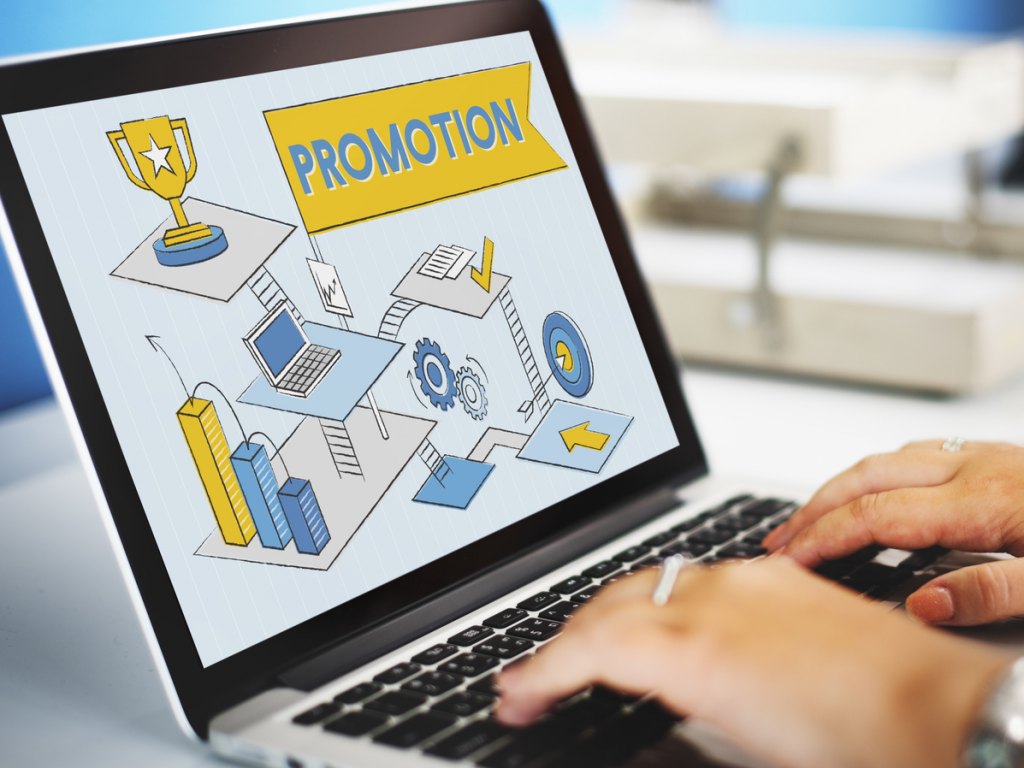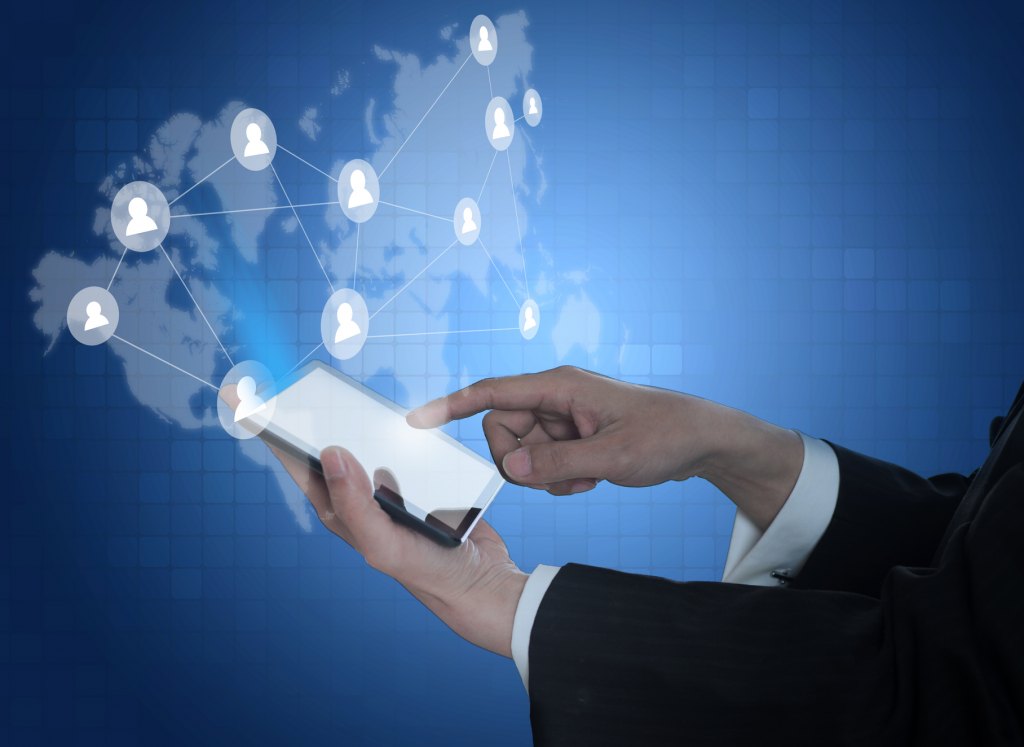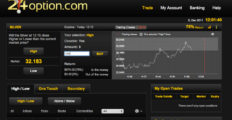The event industry is in a constant state of flux, always evolving to meet the demands of an ever-changing landscape. From the rise of digital platforms to the emergence of new consumer behaviors, event organizers are faced with the daunting task of navigating through a myriad of challenges in order to maximize returns on investment (ROI).
Gone are the days when traditional marketing methods like print ads and cold calling could guarantee success. Today’s audiences are more discerning, more tech-savvy, and more demanding than ever before. As a result, event organizers find themselves grappling with the limitations of conventional approaches, struggling to keep up with the pace of change and meet the evolving needs of their attendees.
In this fast-paced environment, the need for innovative solutions has never been greater. Enter Software as a Service (SAAS) – a game-changing technology that is revolutionizing the way events are marketed and promoted. By leveraging the power of SAAS, event organizers can overcome the challenges posed by traditional methods and unlock new opportunities for success in an increasingly competitive industry.
Understanding the SAAS and its Role in Event Marketing

Definition of SAAS and its Key Characteristics
According to Matheen Haneef, SAAS, or Software as a Service, is a revolutionary technology that offers software solutions on a subscription basis, accessible over the internet. Unlike traditional software models where applications are installed locally on individual devices, SAAS applications are hosted in the cloud and accessed through web browsers. This model eliminates the need for organizations to invest in costly infrastructure or worry about software maintenance, as everything is managed by the SAAS provider.
Key characteristics of SAAS are summarized in a blog article of Salesforce as follows:
Multi-Tenant Architecture
Multi-tenancy is an architecture where all SaaS vendor clients and applications share a single, common infrastructure and code base that is centrally maintained. This architecture allows vendors to innovate more quickly, saving development time previously spent on maintaining outdated code.
Easy Customization
Users can easily customize applications to fit their business processes without affecting the shared infrastructure. A SaaS model supports each user and company’s unique customization changes and preserves them through regular upgrades. This means SaaS providers can make upgrades more often, with less customer risk and lower adoption costs.
Better Access From Network Devices
A SaaS model allows your business to remotely access data from any networked device, making it easy to manage privileges, monitor data use, and ensure many users can see the same information simultaneously.
SaaS Harnesses the Consumer Web
Anyone familiar with Amazon.com or My Yahoo! will be familiar with the Web interface of typical SaaS applications. With the SaaS model, you can customize with point-and-click ease, making the weeks or months it takes to update traditional business software seem hopelessly old-fashioned.
How SAAS Tools Can Streamline Event Marketing Processes?
SAAS (Software as a Service) tools are invaluable assets for event organizers, offering a plethora of functionalities designed to streamline every aspect of event marketing. From comprehensive event management platforms to specialized tools for email marketing, social media management, and content creation, SAAS solutions provide a versatile toolkit to meet the diverse needs of event professionals.
One of the key benefits of SAAS tools is their ability to centralize and automate various marketing processes, saving time and effort for organizers. With intuitive interfaces and customizable features, these tools empower event planners to create and execute targeted marketing campaigns with ease.
Moreover, SAAS platforms often integrate seamlessly with other essential tools and systems, such as CRM software and analytics platforms, enabling organizers to leverage valuable data insights for more effective marketing strategies. By harnessing the power of SAAS, event marketers can optimize their efforts, enhance attendee engagement, and ultimately drive higher ROI for their events.
These tools often include features such as:
- Email Marketing Automation: SAAS platforms provide robust email marketing automation tools that allow event organizers to create, schedule, and send targeted email campaigns to their audience. These tools often come with advanced segmentation capabilities, allowing organizers to personalize their messages and improve engagement.
- Social Media Management: SAAS solutions offer integrated social media management tools that enable event organizers to plan, schedule, and publish content across multiple social media platforms from a single dashboard. These tools also provide analytics and reporting features, allowing organizers to track the performance of their social media campaigns in real-time.
- Attendee Registration and Ticketing: SAAS platforms offer comprehensive attendee registration and ticketing solutions that automate and simplify the registration process for attendees and provide organizers with valuable insights into attendee demographics and preferences. These tools often include customizable registration forms, secure payment processing, and attendee communication features.
- Analytics and Reporting: SAAS platforms come with built-in analytics and reporting capabilities that provide event organizers with valuable insights into attendee behavior, campaign performance, and ROI. These tools enable organizers to track key metrics, measure the success of their marketing efforts, and make data-driven decisions to optimize their campaigns.
Overall, SAAS tools streamline event marketing processes by centralizing key functions within a single platform, reducing manual tasks, and improving overall efficiency. By leveraging these tools, event organizers can save time, resources, and effort, allowing them to focus on creating memorable experiences for their attendees.
Overview of the benefits of using SAAS for event marketing and promotion
The benefits of leveraging SAAS for event marketing and promotion are manifold. Firstly, SAAS solutions offer flexibility and scalability, allowing event organizers to adapt to changing requirements and scale their marketing efforts as needed. Additionally, SAAS tools often come with built-in analytics capabilities, providing valuable insights into attendee behavior and campaign performance. Moreover, SAAS platforms are typically user-friendly and require minimal technical expertise, making them accessible to event organizers of all skill levels. Overall, SAAS offers a cost-effective, efficient, and powerful solution for event marketing and promotion, enabling organizers to maximize their ROI and achieve greater success in their events.
How to Choose the Right SAAS Tools for Event Marketing?

Researching and identifying the specific needs of your event
Before selecting SAAS tools for event marketing, it’s crucial to conduct thorough research and identify the specific needs and requirements of your event. Consider factors such as the size and scale of your event, target audience demographics, marketing objectives, budget constraints, and technical expertise of your team. By understanding your event’s unique requirements, you can narrow down your options and choose SAAS tools that best align with your goals and objectives.
Evaluation criteria for selecting SAAS tools
When evaluating SAAS tools for event marketing, consider the following criteria:
- Features and Functionality: Assess the features and functionality offered by each SAAS tool and determine whether they meet your specific needs. Look for tools that offer robust capabilities for email marketing, social media management, attendee registration, ticketing, analytics, and reporting.
- Ease of Use: Choose SAAS tools that are user-friendly and intuitive, requiring minimal training or technical expertise to use effectively. Consider factors such as user interface design, navigation, and accessibility from different devices and browsers.
- Integration Capabilities: Check whether the SAAS tools integrate seamlessly with your existing systems and platforms, such as CRM software, marketing automation tools, and event management platforms. Integration capabilities ensure data consistency and streamline workflows across different applications.
- Pricing and Scalability: Evaluate the pricing plans and subscription models offered by SAAS providers, taking into account factors such as upfront costs, ongoing fees, and scalability options. Choose a SAAS tool that offers flexible pricing plans and scalable features to accommodate your event’s growth and changing needs.
- Customer Support: Consider the level of customer support and technical assistance provided by SAAS providers. Look for providers that offer responsive customer support channels, such as email, phone, and live chat, as well as comprehensive documentation, tutorials, and training resources.
Overview of popular SAAS tools for event marketing and promotion
There are numerous SAAS tools available for event marketing and promotion, each offering unique features and functionalities. Some popular SAAS tools in this space include:
- HubSpot: HubSpot offers a comprehensive suite of marketing automation tools, including email marketing, social media management, lead generation, and analytics.
- Mailchimp: Mailchimp is a popular email marketing platform that offers a wide range of features for creating, sending, and tracking email campaigns.
- Hootsuite: Hootsuite is a social media management platform that allows users to schedule and publish content across multiple social media channels, monitor social media activity, and analyze performance metrics.
- Google Analytics: Google Analytics is a powerful web analytics tool that provides insights into website traffic, user behavior, and conversion metrics. It can be used to track the effectiveness of event marketing campaigns and measure ROI.
- MeetingHand: MeetingHand is a comprehensive event management platform that offers solutions for attendee registration, ticketing, email marketing, social media promotion, analytics, and reporting. With its user-friendly interface and robust features, MeetingHand simplifies event marketing processes and helps organizers maximize ROI.
How to Leverage SAAS for Pre-Event Promotion?

Utilizing SAAS for email marketing campaigns
SAAS platforms offer powerful tools for creating, managing, and tracking email marketing campaigns. With features such as customizable templates, automated workflows, and advanced analytics, event organizers can effectively engage their target audience, promote event-related content, and drive registration conversions through targeted email campaigns.
Social media management and promotion with SAAS tools
SAAS tools provide comprehensive solutions for managing and optimizing social media marketing efforts. From scheduling posts across multiple platforms to monitoring engagement metrics and analyzing audience insights, these tools empower event organizers to effectively promote their events, build brand awareness, and drive audience engagement through strategic social media campaigns.
Creating engaging content and landing pages using SAAS platforms
SAAS platforms offer intuitive content creation tools and customizable templates for designing engaging event-related content, such as landing pages, registration forms, and promotional materials. By leveraging these platforms, event organizers can create visually appealing content that effectively communicates event details, highlights key benefits, and encourages audience participation and registration.
Implementing targeted advertising and retargeting strategies through SAAS tools
SAAS tools enable event organizers to implement targeted advertising campaigns across various digital channels, including search engines, social media platforms, and display networks. By leveraging audience segmentation, demographic targeting, and retargeting strategies, event organizers can reach relevant audiences, increase brand visibility, and drive conversions by delivering personalized ads to users who have previously interacted with event-related content.
How to Maximize ROI During the Event by Using SAAS Tools?

Using SAAS for attendee engagement and interaction
SAAS platforms offer a range of interactive features and engagement tools that enhance the event experience for attendees. From live polls and Q&A sessions to interactive networking sessions and virtual event platforms, these tools enable event organizers to foster meaningful interactions, facilitate knowledge sharing, and encourage active participation among attendees, ultimately driving greater engagement and satisfaction.
Real-time analytics and data insights provided by SAAS platforms
SAAS platforms provide real-time analytics and data insights that allow event organizers to track key performance metrics, monitor attendee behavior, and measure the effectiveness of event activities in real-time. By leveraging these insights, event organizers can make data-driven decisions, identify areas for improvement, and optimize event strategies on the fly, ultimately maximizing ROI and delivering a seamless and impactful event experience.
Leveraging SAAS for on-site registration, check-in, and attendee management
The SAAS platforms, that were designed for event management, offer comprehensive solutions for on-site registration, check-in, and attendee management, streamlining the event registration process and providing a seamless experience for attendees. With features such as mobile check-in, badge printing, and session tracking, these platforms enable event organizers to efficiently manage attendee logistics, streamline event operations, and deliver a frictionless on-site experience, ultimately enhancing attendee satisfaction and maximizing ROI.
Integrating event services with SAAS systems and incorporating gamification elements
Gamification refers to the process of enhancing a service with affordances for gameful experiences to support the user’s overall value creation. It refers to the practice of adding game-like elements and principles to contexts outside of games. In the context of corporate events, then, gamification means strategically incorporating game-like components into the event to enhance the attendee experience and achieve the target outcomes.
According to research, integrating gamification elements to your event services provide following benefits:
- Enhanced Efficiency and Streamlined Operations: Integrating event services with SAAS systems allows for seamless management of various event aspects such as registration, ticketing, attendee engagement, and data analytics. This streamlines event operations, reduces manual tasks, and increases efficiency, thereby saving time and resources for organizers.
- Improved Attendee Engagement: Gamification elements such as leaderboards, challenges, badges, and rewards can make the event experience more interactive and engaging for attendees. By incorporating gamification into SAAS platforms, organizers can encourage participation, foster healthy competition, and incentivize desired behaviors, ultimately driving greater attendee engagement and satisfaction.
- Data-Driven Decision Making: SAAS systems provide robust analytics and reporting capabilities that offer valuable insights into attendee behavior, preferences, and engagement patterns. By leveraging this data, organizers can make informed decisions, optimize event strategies, and tailor experiences to meet the needs and preferences of attendees, ultimately maximizing ROI.
- Increased Revenue Opportunities: Gamification can be leveraged to drive additional revenue streams through sponsorships, exhibitor engagement, and premium features. For example, sponsors can be integrated into gamified challenges or competitions, offering opportunities for increased brand exposure and revenue generation. Similarly, organizers can offer premium gamification features or upgrades for attendees willing to pay, creating additional revenue opportunities.
- Long-Term Brand Loyalty: Engaging attendees through gamification and integrated SAAS systems can foster a sense of community, belonging, and loyalty to the event and its brand. By creating memorable and interactive experiences, organizers can build long-term relationships with attendees, increase repeat attendance, and ultimately drive sustained ROI over time.
Post-Event Analysis of Event and Follow-Up

Utilizing SAAS for post-event surveys and feedback collection
SAAS platforms offer robust survey and feedback collection tools that enable event organizers to gather valuable insights from attendees post-event. By creating customizable surveys and feedback forms, organizers can solicit feedback on various aspects of the event, including content, speakers, venue, and overall experience. This data can then be analyzed to identify strengths, areas for improvement, and actionable insights for future events, ultimately driving continuous improvement and enhancing attendee satisfaction.
Analyzing event performance metrics and ROI using SAAS analytics tools
SAAS analytics tools provide comprehensive insights into event performance metrics, allowing organizers to measure the success of their events and quantify ROI. From attendance and engagement metrics to revenue generated and attendee satisfaction scores, these tools offer a holistic view of event performance, enabling organizers to assess the effectiveness of their strategies, identify areas of success, and pinpoint areas for improvement. By leveraging these insights, organizers can make data-driven decisions, optimize future event strategies, and maximize ROI over time.
Follow-up strategies using SAAS for continued engagement with attendees
SAAS platforms offer a range of follow-up and engagement tools that enable organizers to maintain communication with attendees post-event. From automated thank-you emails and personalized follow-up messages to targeted promotional offers and exclusive content, these tools facilitate ongoing engagement and nurture relationships with attendees beyond the event. By staying connected with attendees and providing value-added content and resources, organizers can strengthen attendee loyalty, drive repeat attendance, and ultimately increase ROI for future events.
Tips for Effective Implementation of SAAS Solutions for Events
Best practices for integrating SAAS tools into your event marketing strategy
- Define clear objectives: Before selecting SAAS tools, outline your event marketing goals and objectives to ensure alignment with your overall strategy.
- Conduct thorough research: Explore different SAAS options available in the market and select tools that best suit your specific needs and requirements.
- Train your team: Provide adequate training to your team members on how to effectively use SAAS tools to maximize their potential and optimize event marketing efforts.
- Implement a phased approach: Integrate SAAS tools gradually into your event marketing strategy, starting with essential features and gradually incorporating more advanced functionalities.
- Monitor and measure performance: Continuously track key performance metrics and analytics provided by SAAS tools to evaluate the effectiveness of your marketing efforts and make data-driven decisions for optimization.
- Stay updated: Keep abreast of new features, updates, and trends in the SAAS industry to ensure that you are leveraging the latest technology and innovations to enhance your event marketing strategy.
Common pitfalls to avoid when leveraging SAAS for event promotion
- Overlooking customization options: Failing to customize SAAS tools to align with your event branding and messaging can result in a disjointed and inconsistent experience for attendees.
- Neglecting data security: Ensure that the SAAS tools you choose adhere to strict data security standards and protocols to safeguard sensitive attendee information and protect against data breaches.
- Ignoring user feedback: Disregarding feedback from users and attendees regarding the usability and functionality of SAAS tools can lead to missed opportunities for improvement and optimization.
- Underestimating training needs: Inadequate training for your team members on how to effectively use SAAS tools can hinder adoption and utilization, limiting their potential impact on event marketing efforts.
- Over-reliance on automation: While automation can streamline processes and improve efficiency, over-reliance on automated solutions without human oversight can lead to errors, oversights, and missed opportunities for personalized engagement.
Conclusion
As a result, from pre-event promotion to post-event analysis and follow-up, SAAS tools offer a wide range of functionalities and capabilities that enable event organizers to optimize their marketing strategies and deliver exceptional event experiences. As the event industry continues to evolve and grow, leveraging SAAS tools has become increasingly essential for event organizers looking to stay competitive and maximize their ROI. By embracing SAAS solutions and implementing best practices, organizers can unlock new opportunities for innovation, efficiency, and success, ultimately driving greater attendee satisfaction and delivering exceptional event experiences.























Leave a comment!